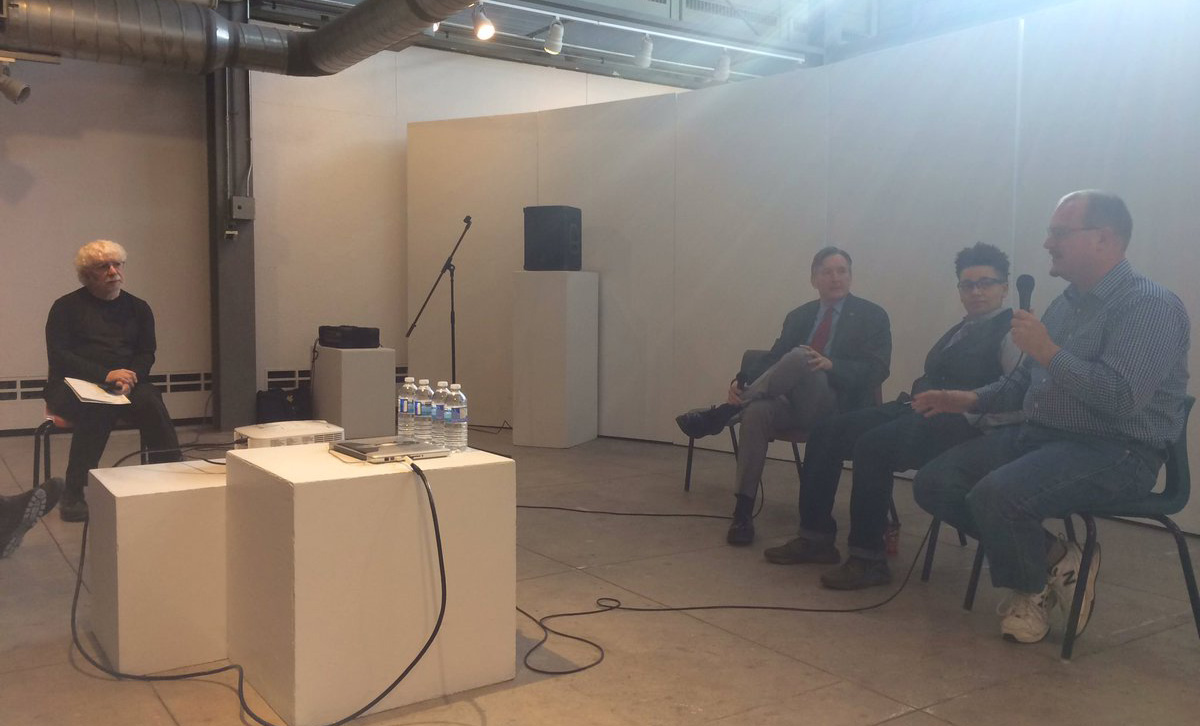Hosted by Dal's School of Planning, the SHIFT conference ÔÇö┬á an annual event intended to inspire positive change and solutions to community issues ÔÇö brought Dal faculty and students together with local politicians and city councillors as well as transit experts from as far away as Oregon and Texas.
Now in its 26th year, the conference has explored topics ranging from engagement to environmental responsibility. This yearÔÇÖs event, SHIFT: InTransit, focused specifically on the need for reliable, community focused transportation in Halifax.
ÔÇťThe goal is not to make public transit just another choice, but the best choice,ÔÇŁ said Frank Palermo, one of the event organizers and faculty member with Dal's School of Planning. ÔÇťWeÔÇÖre inventive people. We can solve this issue. We can make transit work.ÔÇŁ
Students and community members alike came out to Dal's Medjuck Building and the Halifax Central Library last Thursday through Saturday for the public conference, which included keynote lectures, workshops, breakout sessions, and a transit-focused film screening.
Halifax Mayor Mike Savage hosted a panel Friday on the state of transportation in Halifax with Halifax Member of Parliament Andy Fillmore, local MLA Lisa Roberts, and city councillors.

A panel discussion led by Dr. Palermo Saturday morning centred around the need for a more comprehensive transit system accessible for buses, personal vehicles, bicycles, and pedestrians.
ÔÇťPeople want to be able to move dependably, reliably and safely. The mode doesnÔÇÖt matter as much. ItÔÇÖs secondary,ÔÇŁ said Kurth Luhrsen, vice president of planning for the Transit Authority of Harris County, Texas, and one of the conferences keynote speakers.
The general consenus among panelists seemed to be that improving just one of these elements is not enough.
Monica Tibbits-Nutt, a board member for the Massachusetts Bay Transit Authority and another keynote speaker, stressed the importance of education in finding a system that works.
ÔÇťWe have to find opportunities to talk about what planners do. The conversation has to start somewhere,ÔÇŁ she said. ÔÇťWe need to be on the same page to have productive discussions about planning.ÔÇŁ
For politician and civic leader David Bragdon, executive director of Transit Centre, the conference presented more than just an opportunity for discussion.
ÔÇťOne of the things we want to do is not just listen to todayÔÇÖs ideas, but actually think about how to put them into practice,ÔÇŁ he says.
The group had the opportunity to do just that ÔÇö well, sort of ÔÇö through an interactive city planning simulation on the final day of conference.
Now, the real challenge will be taking some of those lessons and applying them in a real-world context.
ÔÇťPlanning is about moving forward,ÔÇŁ says Dr. Palermo. ÔÇťWe have to find ways to take the plan and move ahead. If there is any city that can do that, itÔÇÖs right here.ÔÇŁ

